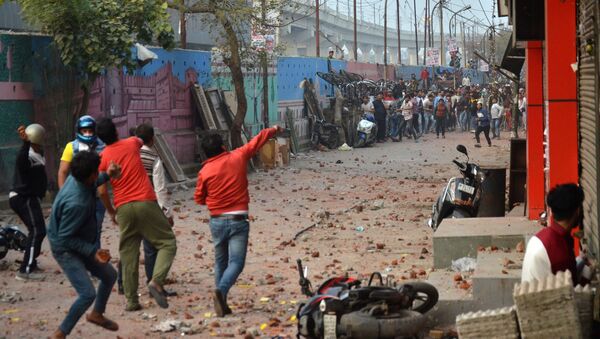While the anti-citizenship law protesters have refused to end their agitation, activists, who had long been supporting the demos, have now asked them to suspend them as the country seeks to ward off the coronavirus spread.
Delhi's Chief Minister Arvind Kejriwal has ordered all public places to close and prohibited the gathering of more than 50 people amid the outbreak in India where positive cases have increased to 126 with three reported deaths.
Despite the warning, the protesters at Delhi's Shaheenbagh have refused to end their 91-day sit-in.
Netizens have slammed the protesters for taking the risk and defying government orders while calling them “suicide bombers”.
This is huge mistake on Govt part. They shouldn't allow people in these numbers to accumulate at one place. This could be catastrophic. People can always fight for their rights some other day but not in these circumstances. #IndiaFightsCorona
— Rakesh Jaiswal (@pcjassi) March 16, 2020
#ShaheenBaghDoesntCare Dear @AmitShah & @narendramodi please show some spine and use force to vacate Shaheen Bagh. The assembly there is risking their healths and risk others by acting with malice. This act is analogous to suicide bombing.
— Saswati Sarkar (@sarkar_swati) March 16, 2020Is this how a responsible citizen behaves?
— Swapnil Beohar (@swapnil_beohar) March 17, 2020
They talked a lot about CONSTITUTIONAL RIGHTS have they ever been told by their organisers about their CONSTITUTIONAL DUTIES.
Amid threat of mass spread these protest centres are the most vulnerable points.#ShaheenBaghDoesntCare https://t.co/Q2mEoMvDgH
I salute Shaheen Bagh women for fighting for heart & soul of Indian Republic. They have inspired millions across the globe!
— Umar Khalid (@UmarKhalidJNU) March 16, 2020
But coz of the serious pandemic threat, I request them to suspend the sit-in for now. Our struggle against discriminatory CAA/NPR/NRC will continue!
Globally, the virus has infected more than 182,400 people and led to the deaths of over 7,000 worldwide, according to the World Health Organisation.
The protesters hold the Citizenship Amendment Act 2019 enacted by the federal government as discriminatory for excluding the Muslim community.
The protesters hold the Citizenship Amendment Act seeks to grant citizenship rights to illegal immigrants from three neighbouring Islamic countries – Afghanistan, Bangladesh and Pakistan, for those belonging to the Hindu, Sikh, Christian, Buddhist, Jain, and Parsi communities. The legislation, which didn't extend the same rights to Muslim immigrants, has sparked widespread protests, with opponents of the law claiming it was discriminating against Muslims. The government has, however, strongly denied these allegations.




